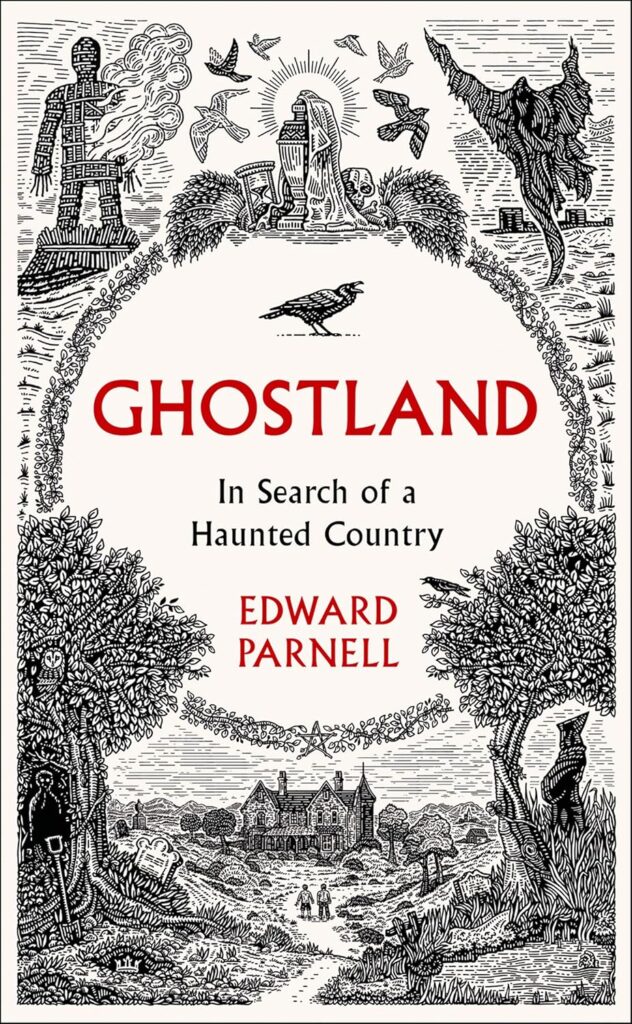
Subtitled In Search of a Haunted Country, this unusual book combines travelogue, literary review, and memoir. England is that country, home to nearly all of the ghost stories I grew up on and to the legends that fired my imagination as a child. Parnell sets out to revisit the ghost stories that have been meaningful to him throughout his life, and actually go to the places where they are set or were written.
I felt as though I were making this journey with him. As he takes us to these places, he shares not only their sometimes beautiful, sometimes eerie atmosphere, but also his own memories of visiting them as a child with his family or later on birding expeditions with his brother Chris. He introduces us to the writer associated with the place and one or two of their stories. This is no dry, academic tome, but rather a genial, engaging story, as though we were in a pub somewhere listening to a fascinating storyteller.
Hard as it was to put down, I spent most of December reading this book because I kept stopping to find and read stories and books that Parnell discusses. Many of the authors, stories and places are old friends of mine. Some were new to me, all or in part. For example, I didn’t know that Rudyard Kipling had written ghost stories. I loved being introduced to The Children of Green Knowe, and returning to old haunts in the fen country and Arthurian-haunted Cornwall and Dorset.
Most of all, I enjoyed revisiting W.G. Sebald’s Rings of Saturn, a formative book for me, and similar in some ways to this book, being also a combination travelogue, memoir and collection of curious information. Parnell refers to a particular scene which
. . . cuts to the heart of Sebald’s work and his exploration of how we, both individually and collectively, come to forget (or at least suppress) the losses we have suffered, the memories of people and events that once came to us to us with such clarity, and the atrocities to which we are in some part complicit.
With this book, though, we are doing just the opposite: exploring the memories that haunt us. I was most moved by a story new to me: “Pirates,” by E. F. Benson, in which a fifty-six-year-old, successful business man comes across his childhood home, now abandoned and beginning to decay. The man becomes obsessed with buying and restoring it, recreating the happy home of his youth, returning even the furniture and other items now in his London home. The story gave me a jolt of recognition for I often dream that I’ve discovered my own beloved childhood home, miraculously not destroyed after all, and that I can buy it and, indeed, return these items from my current home to their rightful places. Then I wake up.
There is something about this time of year that makes me turn to ghost stories. Of course, traditionally the solstice and Christmas Eve are moments when the veil between the living and the dead thins, and perhaps disappears. And there’s something about ghost stories and England. Parnell mentions the Happisburgh footprints discovered in 2013 in Norfolk, England. Dating to the end of the Early Pleistocene, they are the oldest known hominid footprints discovered outside of Africa.
Although only in his late thirties, Parnell has suffered great losses: the deaths of both parents and Chris, his only sibling, leaving him—as one of my friends said of herself—the Last of the Mohicans. He talks about the period during and after the Great War, with its huge loss of life, when those desperate to see again their lost loved ones embraced Spiritualism. One of the themes that lends power to this story is the question of how best to heal from grief. Can we really sense something of them lingering around us? Do we hold onto our dead or let them go?
And of course there are the attendant themes around memory: what we hold onto and what we suppress, why these particular memories stay with us, even though at the time the incidents may have seemed inconsequential. As the year dies, I think about death and welcome my ghosts. I believe this is a book I will return to every December.
Who or what haunts you?